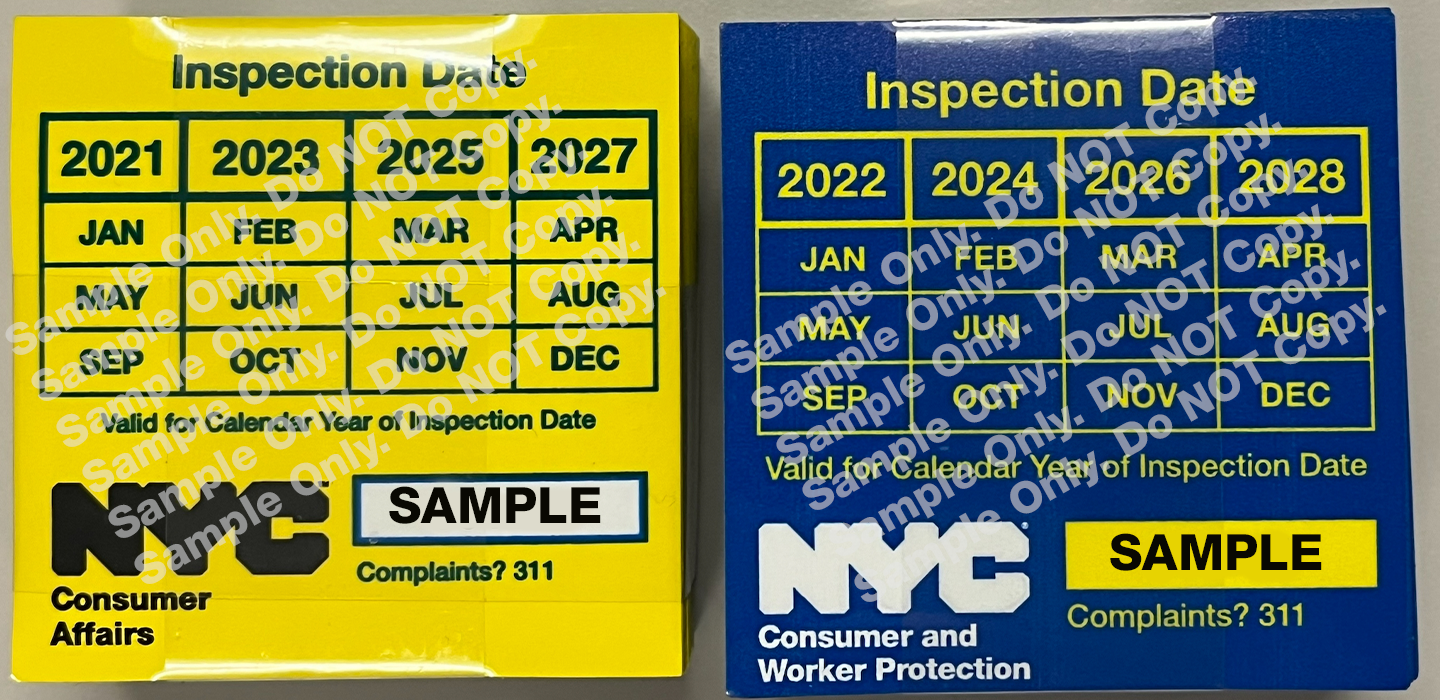
 Consumer and Worker Protection311
Consumer and Worker Protection311 Search all NYC.gov websites
Search all NYC.gov websites
Tips for Home Heating Oil Customers
The Department of Consumer and Worker Protection (DCWP) conducts annual inspections of every heating oil delivery truck that operates out of New York City to ensure each truck’s meters accurately registers how much oil it is pumping so that consumers are not overcharged. Here are some steps that consumers can take to ensure they are not overcharged.
- Check the delivery truck for an up-to-date DCWP seal. DCWP places an official seal on the back of each truck, where it is clearly visible. The official DCWP seal (see below) is proof of inspection and certifies that a truck’s meters accurately registered how much oil was pumped by the truck on the day of inspection. If you see a sticker that is more than one year old, call 311. You can also always ask to see a copy of the company’s certificate of inspection.
- Always use a reputable supplier. Call 311 to check a business’s complaint history. To check home heating oil prices, visit the New York State Energy Research and Development Authority’s website at nyserda.ny.gov.
- Get a written contract that spells out terms. Always get a written contract that includes costs, delivery schedule, gallons promised, services provided, and any other details that have been agreed upon. If you don’t like what you see, either renegotiate the contract or look for a different distributor.
- Before signing a contract, check for any price-changing clauses. Does the agreement lock you into a price even if the price of oil decreases or increases? Check for any other hidden costs, fees, or minimum purchasing requirements. Make sure the salesperson or manager of the oil distributor signs the contract before payment.
- If pre-buying heating oil for the entire season, check for language in your contract that says “while supplies last” before you sign. If the distributor puts this type of clause into your contract, make sure it also details what happens with payment in the case of an oil supply shortage.
- Check your oil tank gauge before and after filling and compare it to your receipt. The law requires retailers to give you a receipt showing exactly how much oil you received and how much you paid per unit of oil. Although some gauges may be inaccurate due to age, many can give a rough estimate of how much oil was received. Regular servicing and re-calibration of the tank gauges can ensure they remain reliable and properly measure the amount of oil delivered.
- Ask your distributor if they have a customer service department and what its hours are. In case of emergency outside of normal business hours, you need to know what the procedure is for contacting the distributor.
- Only use approved heating oils. To reduce air pollution, the City of New York is phasing out Number 4 and 6 heating oils and by 2030 all boilers will be required to use low-sulfur Number 2 oil or natural gas.
- Remember to maintain your heating system. Heating oil is not explosive, but that is not an excuse to ignore storage tank rust, corrosion or other signs of damage. System malfunctions can cause smoke, soot and even spills that can contaminate the environment.
DCWP Inspection Seal for Weighing and Measuring Devices

DCWP applies an inspection seal to devices, including scales, home heating oil delivery trucks, and gas pumps that pass annual inspection. The seals are blue for years that end in an even digit (e.g., 2024) and yellow for years that end in an odd digit (e.g., 2025).
Page updated 6/2024

